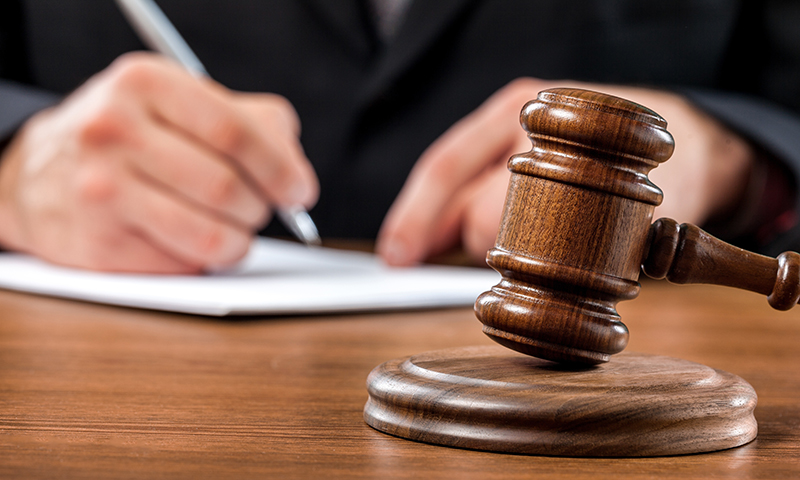Understanding the Difference Between Negligence and Recklessness in Personal Injury Cases

If you’ve ever wondered about the difference between negligence and recklessness and how they impact your personal injury case, you’re in the right place. In this article, we’ll break down these concepts and explain why they matter. When dealing with your personal injury claim, understanding these terms and their nuances can make all the difference.
If you want a Brooklyn personal injury lawyer by your side, ready to discuss your case and fight for the compensation you deserve, don’t hesitate. Schedule a free case review with Held, Held & Held today.
What Is Negligence?
Negligence is a fundamental concept in personal injury law. It signifies a failure to exercise the level of care that a reasonable person would under similar circumstances. In a personal injury case, the plaintiff typically asserts that the defendant owed them a duty of care but breached that duty due to negligent behavior. This breach then caused the plaintiff’s injuries or damages.
To prove negligence, four essential elements must be established: duty of care, breach of duty, causation, and damages. Essentially, it involves demonstrating that the defendant acted carelessly or negligently, resulting in harm to the plaintiff. Negligence cases are often associated with car accidents, where a driver’s disregard for traffic laws or reckless behavior behind the wheel can cause serious injuries. If you’ve been injured in an accident caused by someone else’s negligence, you may be entitled to compensation. To discuss your case with experienced personal injury attorneys, contact us today.
What Is Recklessness?
Recklessness is a critical concept in personal injury law, distinct from negligence. It occurs when someone demonstrates a willful disregard for the safety of others, going beyond mere negligence. In a personal injury case based on recklessness, the plaintiff argues that the defendant acted recklessly, knowingly putting others at risk of harm.
Reckless behavior can manifest in various forms, such as driving under the influence of drugs or alcohol, failing to use a turn signal, or other examples of blatant disregard for safety. Unlike negligence, recklessness often involves a wanton disregard for the safety of others, and it may lead to punitive damages, which are designed to punish the defendant and deter similar behavior.
Negligence vs. Recklessness: What Is the Difference?
In personal injury law, discerning between negligence and recklessness is pivotal. Negligence implies a failure to meet the standard of care expected from a reasonable person, causing harm. Recklessness, on the other hand, transcends carelessness, involving a willful and blatant disregard for others’ safety.
The distinction is significant: negligence may result in compensation for damages, whereas recklessness can lead to punitive or exemplary damages aimed at punishing the defendant and deterring similar behavior. Understanding these nuances can be crucial in a personal injury case based on negligence or recklessness, as it impacts liability and potential outcomes.
When facing such legal issues, seek guidance from experienced personal injury lawyers at Held, Held & Held. We’ll help you navigate your claim and work towards the compensation you deserve. Contact us today for a free case review.
What Is Comparative Negligence?
Comparative negligence is a crucial legal concept that often arises in personal injury cases. It acknowledges that multiple parties may share responsibility for an accident or injury. Unlike a strict contributory negligence system, where even a slight fault on the part of the plaintiff can bar recovery, comparative negligence allows for a more equitable distribution of liability.
In cases involving comparative negligence, the court assesses the degree of fault for each party involved. The compensation awarded to the plaintiff is then adjusted based on their level of responsibility. For instance, if a plaintiff is found to be 20% at fault for an accident and the defendant 80%, the plaintiff’s recovery is reduced by their own negligence percentage.
Understanding comparative negligence is vital, as it can significantly impact the compensation you receive in a personal injury lawsuit. Navigating comparative negligence and fault requires legal help. Consult Held, Held & Held, experienced personal injury lawyers, to discuss how comparative negligence may affect your case and your path to justice.
Contact Held, Held & Held Today
Distinguishing between negligence and recklessness is important to a successful case. The choice of whether to pursue compensation based on negligence or recklessness can have far-reaching legal and financial implications.
If you have faced harm due to someone else’s negligence or recklessness, remember that knowledge is power. Understanding these terms and how to handle a personal injury claim helps you to make informed decisions and fight for your rights. To navigate the complexities of personal injury law, don’t hesitate to work with an experienced personal injury lawyer. Contact Held, Held & Held for a free case review.
We’re here to help you secure the compensation you deserve and find the justice you seek.
